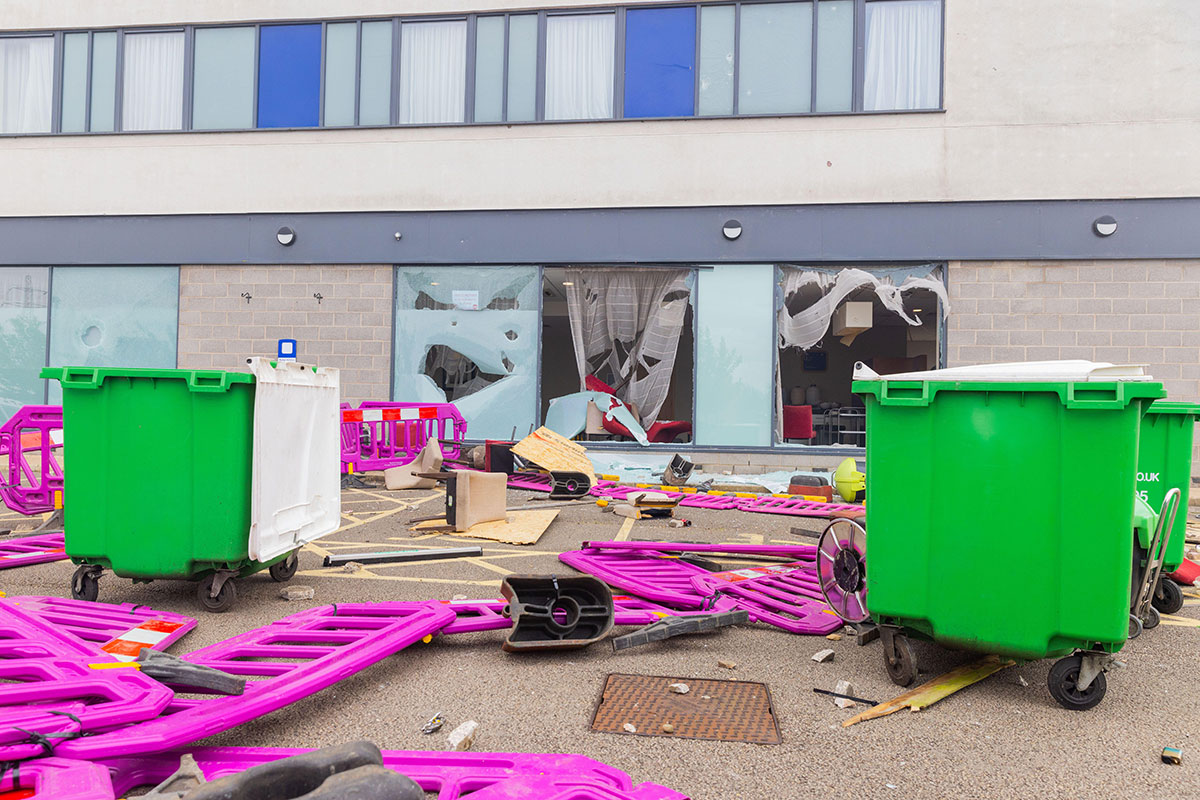You are viewing 1 of your 1 free articles
Housing Diversity Network issues advice to support tenants through riots
The Housing Diversity Network (HDN) has issued advice to support tenants and communities amid recent riots in the UK.
In the short term, the membership body urged housing providers to reach out to tenants who may have been directly affected by the disturbances. It said personal check-ins, offering reassurance and providing practical support can make a “significant difference in their sense of safety and well-being”.
Landlords should ensure tenants are aware of available resources, such as mental health support, legal assistance and community services, as well as how to access them.
It said housing organisations had a “crucial role” to play in fostering “safe and inclusive communities”.
The advice updates previous guidance on promoting “cohesion and resilience” to reflect recent racist violence. The killing of three girls in Southport more than a week ago sparked riots across England and Northern Ireland.
On Sunday, rioters tried to set fire to a Holiday Inn in Rotherham, South Yorkshire, which was housing asylum seekers.
For a community to be “cohesive and resilient”, HDN said, there must be “positive social relationships across different social groups” so that there are “opportunities for conflict or animosity to be openly addressed”.
HDN suggested reviewing and enhancing security measures around housing estates in response to the “heightened tensions”. This might involve increasing surveillance, improving lighting in communal areas and ensuring tenants are aware of emergency contact numbers.
It also recommended establishing “channels for open and respectful dialogue” about the issues. This could include setting up a community forum or support group where tenants can share their experiences and concerns “without fear of reprisal”. Workshops or training sessions on “cultural competence and anti-racism” can help tenants understand “the impact of their actions and the values of diversity”.
Landlords should operate a “zero-tolerance zone” for racism, with posters, leaflets and regular reminders to reinforce the message and discourage discriminatory behaviour. Following the 2011 riots, some organisations threatened to evict convicted rioters, HDN pointed out.
Finally, it urged providers to train staff in “myth-busting, fact-checking and challenging misleading statements”, especially in terms of allocations, where there is potential for “wildly misleading claims” about priorities in the rehousing of refugees and asylum seekers.
According to government figures, only 15% of people in social housing are foreign-born, including British citizens, while just 1.5% of tenants arrived in the UK in the past five years.
“Community tensions can arise when one group feels that another group has preferential access to basic resources, such as housing,” HDN said.
Housing organisations therefore have a responsibility to “ensure that policies and practices for allocating housing are scrupulously fair, transparent and clearly communicated to housing applicants”.
In the medium to long term, the organisation suggested encouraging tenants to engage in “community activities and events that promote understanding and solidarity among diverse groups”.
Housing organisations should reaffirm their commitment to anti-racism policies and addressing “institutional biases”.
They can also actively “encourage and support social groups to move into ‘new’ areas” to “improve the demographic mix of neighbourhoods”.
HDN pointed out that groups who live in particularly poor-quality housing were “likely to feel resentment towards others who have access to far better quality housing, especially if they perceive others to have unfair advantages”.
To reduce the likelihood of resentment and tension arising, housing organisations can work to improve the standard of all the properties they own, so that all groups feel satisfied by the basic standard of the housing available to them, it said.
Sign up for our tenancy management newsletter
Already have an account? Click here to manage your newsletters












